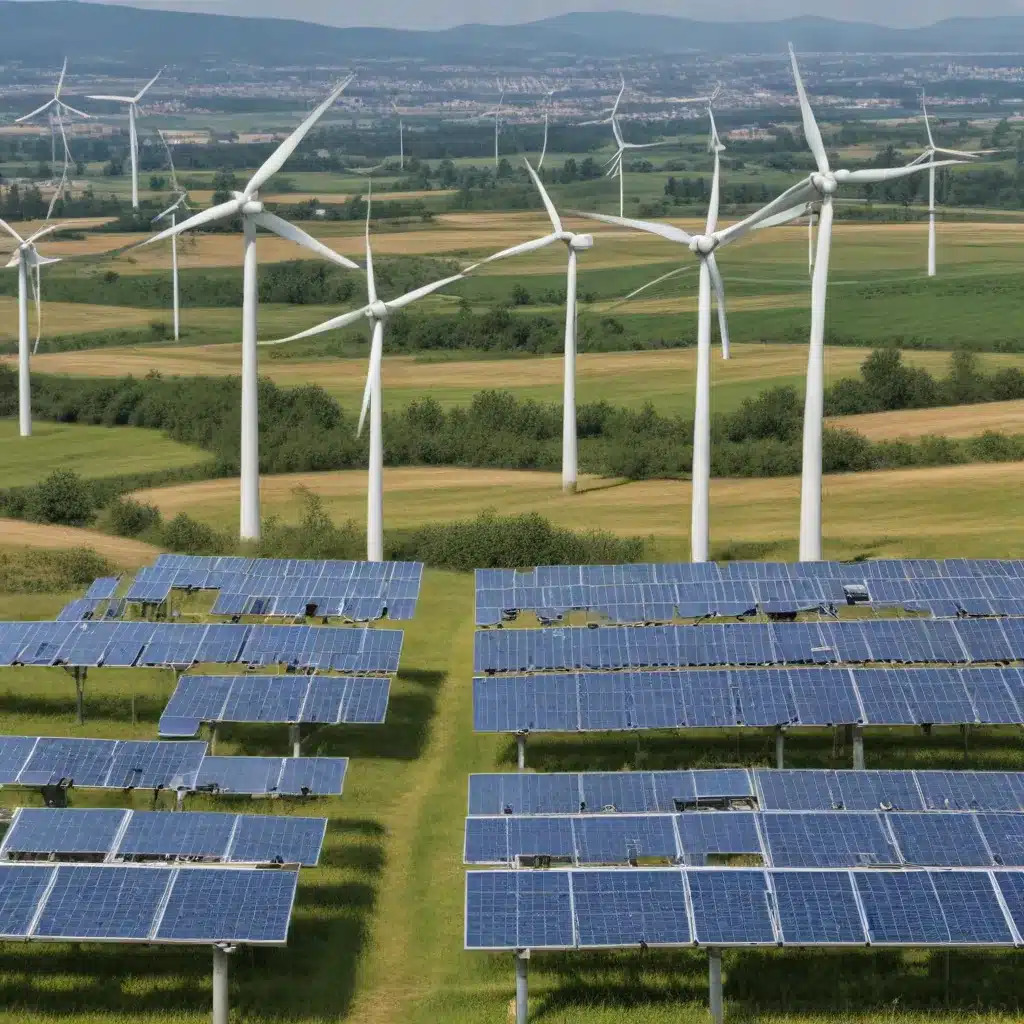
Regulatory Incentives for Renewable Energy Prosumer Models: Empowering Citizen Participation
As Europe accelerates its transition towards a sustainable energy future, the role of renewable energy prosumers has become increasingly crucial. These empowered citizens, who both consume and produce clean energy, are poised to transform the way we generate, distribute, and utilize electricity across the continent.
Renewable Energy Prosumer Concept
At the heart of the prosumer model lies the notion of active consumer engagement. Traditionally, households and businesses have been passive recipients of energy, relying on centralized utility providers to meet their needs. However, the proliferation of distributed energy resources, such as rooftop solar panels and residential battery storage, has enabled citizens to take a more active role in their energy generation and consumption.
Renewable energy prosumers, whether individuals or collectives, are leveraging these technologies to produce their own clean power, reduce their reliance on fossil fuel-based grid electricity, and even sell any surplus energy back to the grid. This shift empowers consumers to take control of their energy use, lower their carbon footprint, and potentially enjoy financial benefits from their prosumer activities.
Citizen Participation in Prosumer Models
Recognizing the transformative potential of renewable energy prosumers, the European Union has introduced a range of policy and regulatory frameworks to incentivize and support their participation in the clean energy transition.
Policy and Regulatory Frameworks
The EU’s Clean Energy for All Europeans package, adopted in 2019, laid the foundation for the legal recognition of citizen energy communities and renewable energy communities. These new market entities enable citizens, small businesses, and local authorities to collectively produce, manage, and consume their own renewable energy.
Building on this framework, the revised Renewable Energy Directive and Internal Electricity Market Directive further defined the rights and obligations of these community-based prosumer models. EU member states are now required to enact national policies that facilitate the development of energy communities, including simplified registration processes, reduced fees, and access to financial support schemes.
Empowering Prosumer Participation
To drive the widespread adoption of renewable energy prosumer models, policymakers have implemented a range of incentive mechanisms and supportive initiatives.
Incentive Mechanisms
One of the key drivers for prosumer participation is the introduction of self-consumption and peer-to-peer energy trading schemes. These allow prosumers to directly exchange their surplus renewable energy with their neighbors or local community, often at preferential rates, bypassing the traditional utility-centric model.
Additionally, many EU countries have introduced feed-in tariffs, net metering, and net billing programs, which compensate prosumers for the renewable energy they export to the grid. These financial incentives help offset the initial investment costs associated with adopting distributed energy technologies, making the prosumer model more accessible and appealing to a broader range of citizens.
Grid Integration Challenges
As the number of renewable energy prosumers grows, the integration of their distributed generation capacity into the existing electricity grid has emerged as a critical challenge. Policymakers and regulators are working to address this by promoting the development of smart grid technologies, which enable better monitoring, control, and optimization of distributed energy resources.
Community Energy Initiatives
To further support the empowerment of renewable energy prosumers, the European Commission has launched several initiatives, such as the Energy Communities Repository and the Rural Energy Community Advisory Hub. These programs provide technical assistance, best practice sharing, and capacity-building support to help local communities establish and scale their own prosumer-driven energy projects.
Technological Advancements
The rise of renewable energy prosumer models has been closely intertwined with the rapid evolution of distributed energy technologies, including solar photovoltaics, small-scale wind turbines, and residential battery storage systems.
Distributed Energy Resources
These distributed energy resources (DERs) have become increasingly affordable and accessible, enabling prosumers to generate, store, and manage their own renewable energy with greater ease and efficiency. The integration of DERs with smart home and smart grid technologies further enhances the prosumer’s ability to optimize their energy consumption and seamlessly exchange power with the grid.
Smart Grid Technologies
The transition towards a decentralized, digitalized, and democratized energy system has been driven by the development of smart grid infrastructures. These advanced grid technologies enable real-time monitoring, bidirectional communication, and intelligent control of distributed energy resources, allowing for better integration and optimization of prosumer-generated renewable electricity.
Prosumer-centric Applications
Alongside technological advancements, innovative prosumer-centric applications have emerged, empowering citizens to participate more actively in the energy transition. These include peer-to-peer energy trading platforms, community energy management systems, and virtual power plant models that aggregate and coordinate the distributed generation and flexibility resources of multiple prosumers.
Socioeconomic Implications
The rise of renewable energy prosumer models has far-reaching socioeconomic implications, transforming the way we consume, produce, and distribute energy.
Democratization of Energy
By enabling citizens to take ownership of their energy generation and consumption, the prosumer model contributes to the democratization of the energy system. This shift empowers communities, reduces energy poverty, and fosters a greater sense of engagement and empowerment in the clean energy transition.
Sustainable Consumption Patterns
Renewable energy prosumers are not only producing their own clean power but also adopting more sustainable consumption patterns. By optimizing their energy use, leveraging demand-side flexibility, and partaking in collective self-consumption schemes, prosumers are playing a crucial role in reducing overall energy demand and the carbon footprint of the energy sector.
Community Resilience
The decentralized nature of renewable energy prosumer models enhances the resilience of local communities. By reducing their dependence on centralized utility providers and the vulnerabilities of the traditional grid, prosumers can better withstand energy price fluctuations, supply disruptions, and other system-wide shocks, thereby strengthening the overall energy security and self-sufficiency of their communities.
As Europe continues to drive its ambitious net-zero emissions goals, the rise of renewable energy prosumer models will be crucial in empowering citizens, fostering sustainable energy consumption patterns, and building resilient, community-driven energy systems. Through innovative policy frameworks, supportive regulatory incentives, and technological advancements, the European Union is well-positioned to unlock the transformative potential of these citizen-led energy initiatives.







